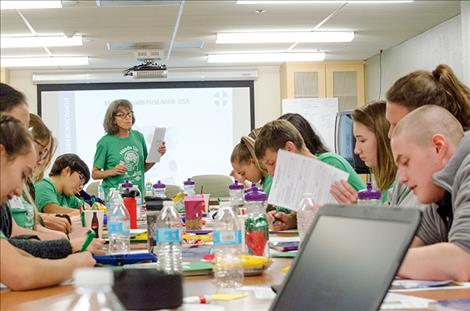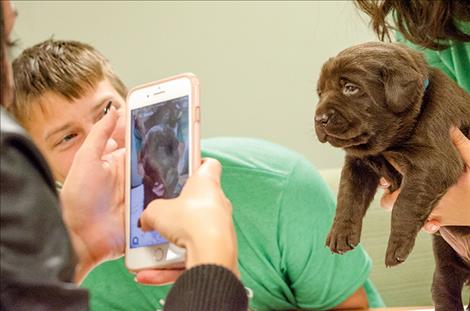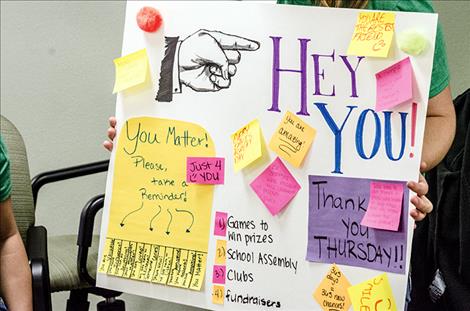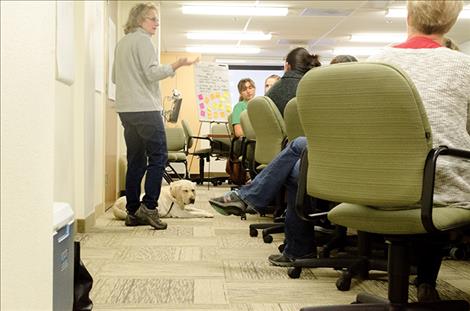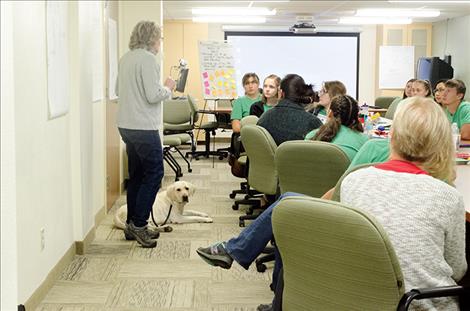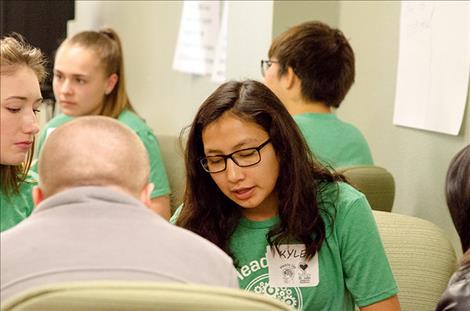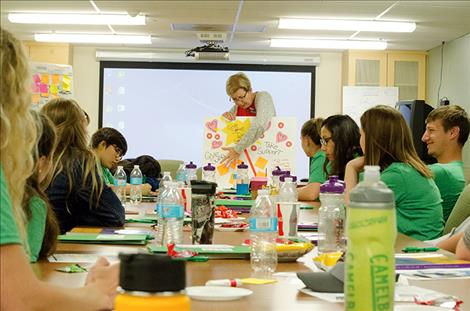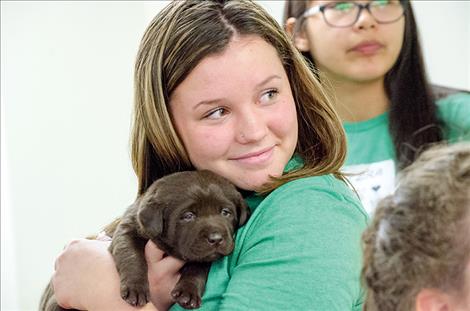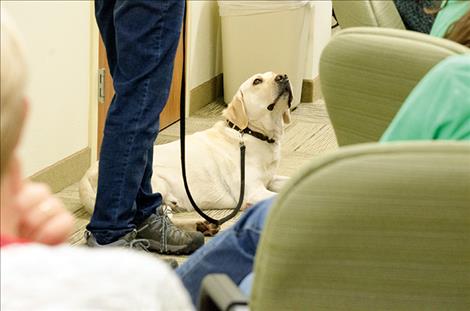Teens gather to learn suicide intervention skills
Hey savvy news reader! Thanks for choosing local.
You are now reading
2 of 3 free articles.
RONAN – One of Kylei BigBow’s friends died by suicide last year. The 17-year-old Polson High School student was so overcome with grief from the loss that she decided she needed to do something about the issue.
“I wanted to take that grief to help conquer this,” she said of suicide. “I want people to know that there is hope, and it’s okay to ask for help.”
She signed up for a two-day Heads Up Behavioral Health Camp where she took a class called Youth Mental Health and First Aid to become a peer advocate for suicide prevention. She learned to notice the signs of someone in crisis and what to do about it.
More than a dozen other students ranging between 12-18 years old from schools across Lake County attended the program on Thursday and Friday.
St. Luke Community Healthcare provided the space and food for the project. HOSA Future Healthcare Professionals State Director Martha Robertson recruited the students from Lake County schools, and the Youth Mental Health and First Aid experts were brought in with funding from a grant through the Montana Office of Public Instruction.
Skye Chandler, 16, of Ronan sat at a table working on a poster during the workshop with other students. She was writing messages that said: “You matter.” She planned to hang the poster up at school after the event.
She said she felt like the topics of suicide and mental health issues were not too intense for teenagers to talk about because they dealt with those issues all the time. She said suicide impacts people of all ages from children to adults and she wanted to know what to do about it.
“We all need to be aware of this issue so we can do something to help,” she said.
Ezra Roan, 16, of Arlee, said suicide has had an impact on her community and people need to talk about it. “I’m here so I can learn how to help my community,” she said.
Director of the Nate Chute Foundation, Joan Schmidt, taught the YMHFA class. She said the goal of the class is to provide students with information and experience so they can be peer advocates and share the information they learn with other
students. She explained that kids are sometimes the first people to know that their friends are in crisis and knowing how to react can help save lives.
“We have a high suicide rate in Montana, and a need for mental health in schools,” she said. “OPI has brought this program into communities to give them the tools and skills to make early interventions.”
Schmidt worked with the students to help them learn to recognize a mental health crisis, although the symptoms can be different for everyone. Some of the symptoms the students were taught to notice include a list of things like threatening self harm, talking or writing about death, expressing hopelessness, withdrawing from friends or family, or giving away possessions.
The students learned how to talk to their peers if they notice any unusual symptoms with an action plan based on the acronym “ALGEE” to help them remember what to do in a situation. The five steps included assessing a person for risk of suicide; listening without judgment, giving reassurance; encouraging professional help; and encouraging self-help and other support strategies. The students practiced using these skills during several skits.
Before the students developed their own scenarios, Schmidt asked that they ask for support if they needed it at any time during the exercise.
“There have been a lot of recent suicides and I don’t want to trigger a situation for someone,” she said. “Reenacting these situations can be a powerful experience.”
The students worked on issues from drug use, depression, and abuse. Schmidt told them that things could get even more difficult in real life.
“This is different than what we usually do,” she said. “What we usually do is to ignore things like this and move away. This is about engaging people that are struggling.”
She said asking a friend if they are thinking about killing themselves might be one of the toughest questions they ever ask, but it could give someone valuable support. “It can be a relief for some people to have someone to talk to,” she said.
An important message repeated often by Schmidt and other speakers, including Lake County Sheriff Don Bell, is that students need to make sure they are safe in any situation.
“I want you to be encouraged to help people, but I also don’t want you to put yourself at risk,” Schmidt said. They were told to find help if any situation became a danger to themselves or others.
After the students were given their Mental Health First Aid certificates for completing the training, the final speaker, Karen Duty, brought in several chocolate lab puppies for the students to hold. Duty is with Hellroaring Kennels in Polson. She raises puppies to become service dogs for therapy purposes or emotional support.
The students wanted to hear how the dogs were trained to help people with mental health issues. Duty told them that the training starts when the dogs are puppies.
She said that one of her dogs went to a military veteran with posttraumatic stress disorder. The dog was trained by specialists to help the veteran wake up from nightmares. She said dogs could be trained to help with all kinds of issues.
According to the most recent data released by the Center for Disease Control and Prevention in 2014, suicide is the second leading cause of death for people ages 10-24 in the Untied States. Schmidt said Montana has been among the five states with the highest suicide rates every year for the last 40 years.
“The numbers have steadily gone up in the past ten years,” she said. “We need to reduce the stigma around suicide so that people can talk about it. It’s going to take all of us to reach out to people that are struggling and let them know that recovery is possible.”
For anyone in crisis, call the National Suicide Prevention Lifeline at 1-800-273-TALK. The resource is available 24-hours a day and all calls are confidential. People can also text “MT” to the crisis line at 741-741.















